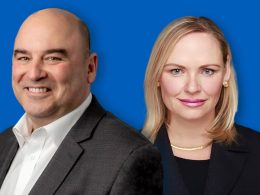by Peter Tchir, TF Market Advisors
1982 S&P Points Later…
For most of the year we seem to live a frantic day to day existence of chasing returns and the market. Every decision seems critical, yet around this time of the year, people get comfortable with what they have. They live through the volatility and stick with their plans. The fact that no one feels the need to trade helps reduce the actual need to trade, but it is also the time of year when I like to look at what a “perfect” year would have been.
Had you gone home long or short the S&P every night with perfect timing, there were 1982 S&P points potentially to be earned. Far more than the actual change of 169 points. I find this number both encouraging and disturbing. Encouraging because there is so much opportunity to be right and in spite of the hype, no one is even close to getting it that right. On the other hand, it is disturbing as sometimes so much time and energy is spent and even the 169 looks phenomenal.
Really just something to think about, no real reason to focus on it, or think it is particularly meaningful, but sometimes helpful to remember and keep things in perspective.
A President Does His Job and the Nation Yawns.
Two weeks ago, news that the President was returning early to work on cliff deal would have sparked a 20 point move in the S&P 500. It didn’t. I think that is because
- The market is still positioned for a resolution
- Recent events have eroded what confidence was left in government making any meaningful long term progress highly unlikely
- Most people in America with responsibility have had to cancel or cut vacations short for less important reasons than the “fate of the country”
Okay, so the 3rd reason isn’t really a reason but a politician trying to get special credit for performing their job is ridiculous especially since many don’t actually do their job.
QE and Final Demand
The market has already spent the next [6] months of QE? Okay, 6 months is just a guess, but everyone seems to be positioned for QE to drive the bond markets. That credit spreads will tighten because of all the money the Fed is printing. Some have even borrowed money to put on that bet with the intention of selling at a profit. So a lot of potential from QE is priced in already, that we have known for awhile.
What we didn’t know, was whether QE would impact the real economy. Everything I’m hearing about retail sales is disappointing. People aren’t spending at a rate that will propel the economy forward. Americans are spending, but at reasonable levels. Sadly, the economy, or at least stock market, may need Americans to spend at irrational levels to prosper. I just read that last sentence 3 times to see if it makes sense or whether I really mean it, and I think it does.
So we are missing on final demand being increased, at least at the household level, so far. No reason to see that changing.
No matter what resolution we get out of the “fiscal cliff” talks, it won’t be a big increase in government spending. So that won’t be the engine for final demand growth.
Japan is full on board the currency debasement and export your way to riches bandwagon. There must be an awful lot of consumers in Papua New Guinea waiting to buy all the products the US, Europe, and Japan have to export to return to fiscal balance.
I have trouble picturing CEO’s with business plans for growth just waiting for the “fiscal cliff” to put them into action. The theory that CEO’s are holding back on new projects solely because of the cliff seems far too simple and if CEO’s aren’t about to start new projects, then where will the final demand or growth come from?
Bearish
I remain medium bearish the markets here. The U.S. in particular seems too high. I don’t see a big sell-off, but think we can get to sub 1,400. I would look for CDS to move wider with stocks. Monday, I wrote about the CDS paradox, and think that continues to apply. I would look for Europe to get dragged down with the US.
I would then be looking to get long via CDS (after cutting what is left of the short) and look for exposure to Europe and other areas where the effects of loose monetary policy is just beginning to take effect. Last year too many missed Greek and Irish debt. That story may be played out, but the lessons shouldn’t be ignored.
Disclaimer: The content provided is property of TF Market Advisors LLC and any views or opinions expressed herein are those solely of TF Market Advisors. This information is for educational and/or entertainment purposes only, so use this information at your own risk. TF Market Advisors is not a broker-dealer, legal advisor, tax advisor, accounting advisor or investment advisor of any kind, and does not recommend or advise on the suitability of any trade or investment, nor provide legal, tax or any other investment advice.
Copyright © TF Market Advisors













